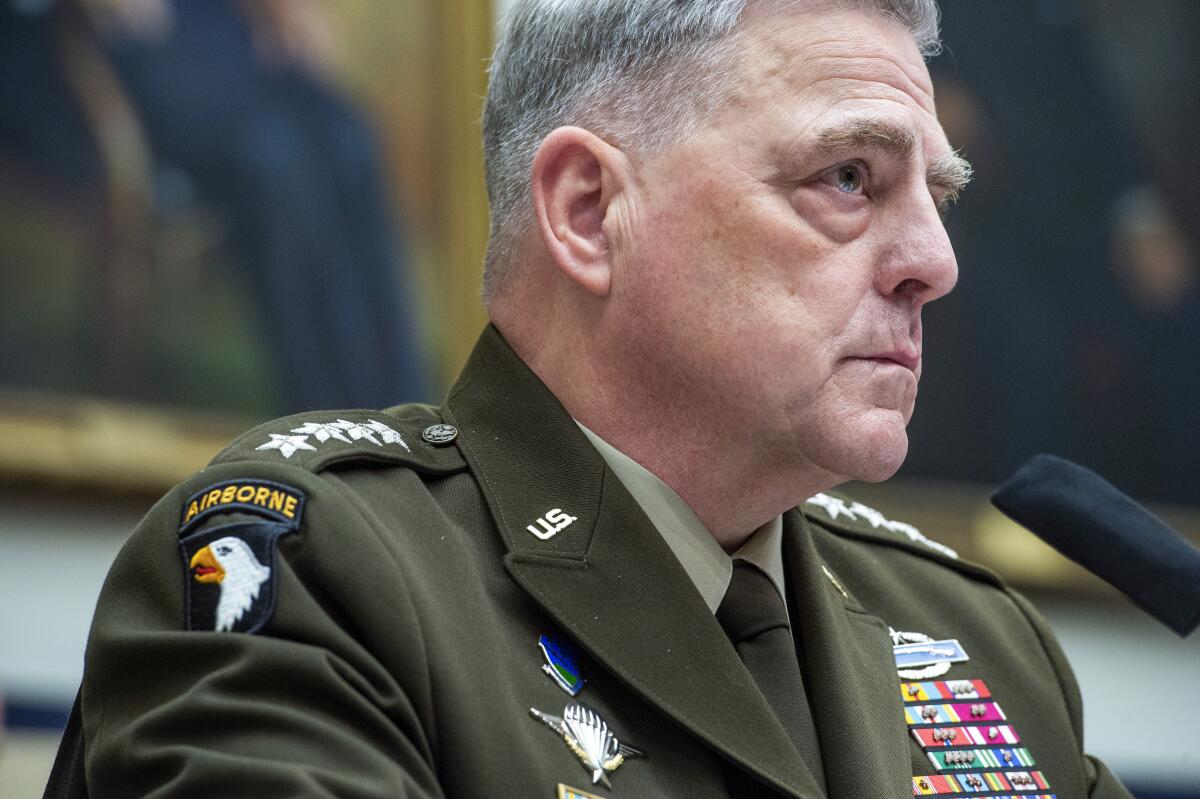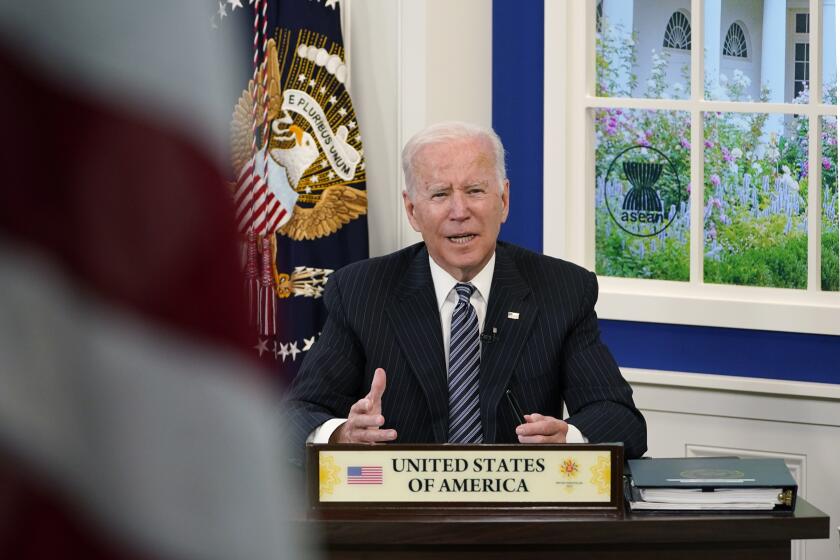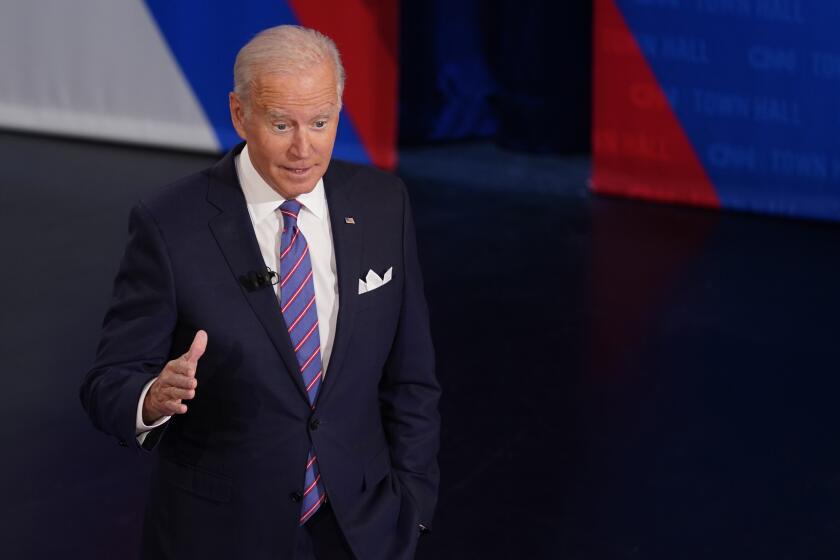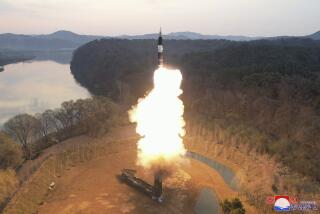Chinese hypersonic weapon test is close to being a ‘Sputnik moment,’ top U.S. general says

- Share via
WASHINGTON — China recently conducted a “very concerning” test of a hypersonic weapon system as part of its aggressive advance in space and military technologies, the top U.S. military officer says.
Gen. Mark Milley, chairman of the Joint Chiefs of Staff, was the first Pentagon official to confirm on the record the nature of a test this year by the Chinese military that the Financial Times had reported was a nuclear-capable hypersonic weapon. The report said the weapon was launched into space and orbited the Earth before reentering the atmosphere and gliding toward its target in China.
Milley said he could not discuss details because aspects involved classified intelligence. He said the U.S. also was working on hypersonic weapons, whose key features include flight trajectory, speed and maneuverability that make them capable of evading early-warning systems that are part of U.S. missile defenses. The U.S. has not conducted a hypersonic weapon test of the sort Milley said China had achieved.
“What we saw was a very significant event of a test of a hypersonic weapon system, and it is very concerning,” Milley said on “The David Rubenstein Show: Peer-to-Peer Conversations” on Bloomberg Television.
“I think I saw in some of the newspapers, they used the term ‘Sputnik moment,’” he added. “I don’t know if it’s quite a Sputnik moment, but I think it’s very close to that. So it’s a very significant technological event that occurred, or test that occurred, by the Chinese. And it has all of our attention.”
The launch of a Sputnik satellite by the Soviet Union in 1957 stunned the world and fed U.S. fears that it was falling behind technologically in an accelerating arms race in the early stages of the nuclear age.
President Biden is flying to Europe for a pair of international conferences this week, but his mind is on Asia.
China has disputed Western news reports about its test, saying it was working on technology for a reusable space vehicle for peaceful purposes.
Asked about Milley’s remarks, White House Press Secretary Jen Psaki said he was conveying concern about China’s military modernization.
“They continue to pursue capabilities that increase tensions in the region,” she said. “And we continue to have concerns about that. And I think that was reflected in his comments.”
The Pentagon’s press secretary, John Kirby, declined to comment on the test or on Milley’s remarks beyond saying that China’s work on advanced hypersonic weaponry is among a “suite of issues” that cause the Biden administration to be concerned by “the trajectory of where things are going in the Indo-Pacific.”
Asked about progress on U.S. hypersonic weapon technologies, Kirby said it “is real, it’s tangible, and we are absolutely working toward being able to develop that capability.” He declined to provide specifics.
Beijing insists there is ‘no room’ for compromise or concessions over the issue of Taiwan, which China maintains is part of its rightful territory.
Some U.S. defense experts say the worry about China’s work on a hypersonic weapon that could deliver a nuclear weapon from space is overblown.
James Acton of the Carnegie Endowment for International Peace wrote in an essay last week that the U.S. has long been vulnerable to a Chinese nuclear attack.
“While the prospect of a nuclear attack against the United States is terrifying, this is no Sputnik moment — partly because it’s not entirely clear what was tested, but mostly because the threat of a Chinese nuclear attack on the United States isn’t remotely new,” Acton wrote.
In addition to its advances in hypersonic weapons, China has been expanding its network of underground silos that could be used to launch intercontinental-range nuclear missiles, and it has rebuffed U.S. calls to join nuclear arms control talks.
The U.S. also has raised concerns about what it calls Chinese efforts to intimidate Taiwan, the self-ruled island that China claims as part of its territory, and to claim disputed islands and other land features in the South China Sea.
More to Read
Sign up for Essential California
The most important California stories and recommendations in your inbox every morning.
You may occasionally receive promotional content from the Los Angeles Times.












